Letter from Africa: Maya Angelou’s broad embrace
- Published
- comments
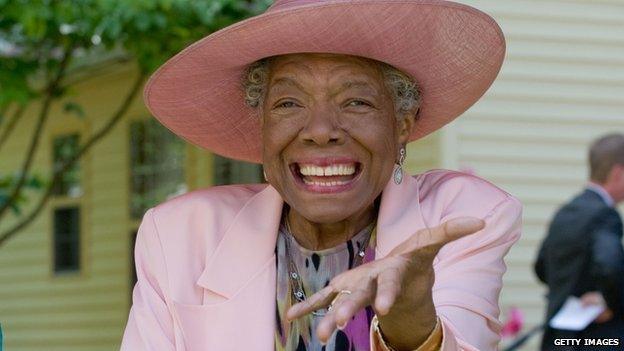
In our series of letters from African journalists, writer and telecommunications policy consultant Kwaku Sakyi-Addo reflects on Ghana's influence on the US writer and rights activist Maya Angelou, who lived there for some years in the early 1960s.
I met Maya Angelou in August 1986. She had come to Accra for the re-burial of WEB Du Bois at the library established in his honour.
Du Bois was a pan-Africanist and close associate of Ghana's first President Kwame Nkrumah.
He was one of many African-American intellectuals and civil rights activists who flocked to Ghana as pilgrims after the country's independence in 1957.
Maya Angelou was one of them.
I had been reading Angelou in my early 20s as a journalism student.
I had only seen her in photographs.
But I picked her out from half a mile away as she stood among a group of visitors waiting to walk in a procession to the reburial ceremony at the WEB Du Bois Centre that morning.
Like a little child at the sight of a long-lost favourite auntie, I ran towards her.
She flung her long arms open like big, old French windows.
I leapt through them, and into her bosom. Maya Angelou's bosom.
And then… she began to cry. I, too, cried. And then we broke into laughter.
I believe great writers experience this wherever they go.

Maya Angelou and Africa
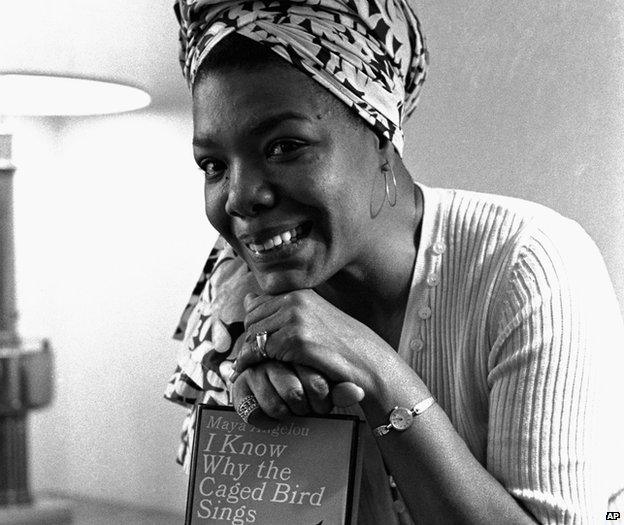
Moved to Cairo in 1960 with South African civil rights activist Vusumzi Make and edited the English language weekly The Arab Observer
In February 1962 she met South African freedom fighter Nelson Mandela in Cairo, external
She and her son Guy later moved from Egypt to Ghana's capital, Accra, where she taught at the University of Ghana's School of Music and Drama
Also worked as feature editor for The African Review and wrote for The Ghanaian Times
Met Malcolm X when he visited Ghana in 1964 and later returned to the US to help him build his new Organization of African American Unity
Nelson Mandela recited her poem Still I Rise, external at his presidential inauguration in South Africa in 1994

People who have read and love their work become part of their family. And they treat them as such.
I touched her; I inspected her - she was tall, six feet tall.
Her big smile revealed that famous gap-tooth I had seen in Ebony magazine and on the cover of her books. This is a symbol of beauty in Ghana.
Her voice was deep; deep as her poetry.
'Auntie Maya'
When I had finally calmed down, she introduced me to Betty Shabazz, wife of Malcolm X.
I took out my reporter's notebook, got some quotes for the news and, of course, autographs.
She wrote out my name in full and signed hers underneath it in the most beautiful handwriting I had seen since that of Mr Acheampong, my Class Three teacher.
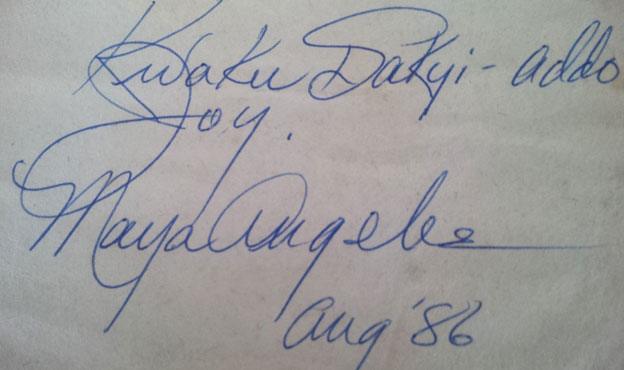
She added her home address and her phone number.
I felt special.
But actually, I was a beneficiary of the special place that Ghana held for Angelou.
She had lived in Ghana for three years with her son, Guy, from 1962, writing and performing.
Professor Esi Sutherland Addy, whose mother was Angelou's friend, remembers her simply as "Auntie Maya".
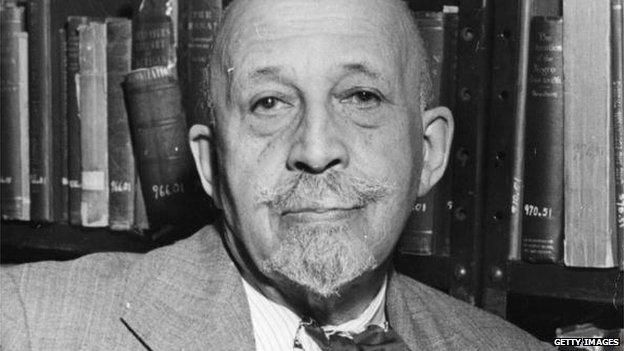
US-born pan-Africanist WEB Du Bois died in Ghana's capital, Accra, in 1963 at the age of 95
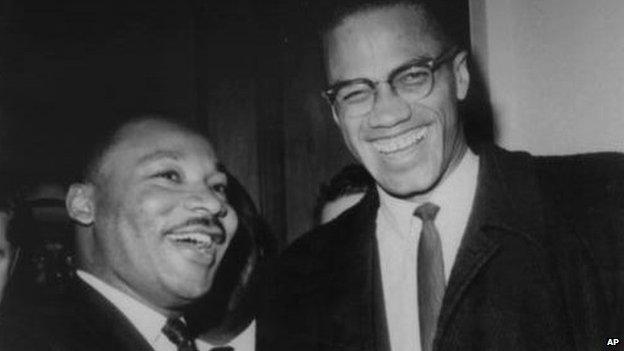
Maya Angelou was involved in civil rights movements run by Martin Luther King (L) and Malcolm X (R)
She would come to their house and chat with her late mother, Efua, herself a writer.
Ms Sutherland-Addy says, as a child, she did not realise who "Auntie Maya" really was, or that when she left Ghana, she would still "rise" and become "a black ocean, leaping and wide, welling and swelling" and bearing "in the tide".
Sadly, most young Ghanaians would not know about Maya Angelou and her links to Ghana. She is not on the curriculum.
And in the frenzy of materialism, who cares about literature?
But Maya Angelou will not die. Maya Angelou is not dead.
You do not die when you leave the imprint of your soul indelibly on the mighty rocks of time.
If you would like to comment on Kwaku Sakyi-Addo's column, please do so below.